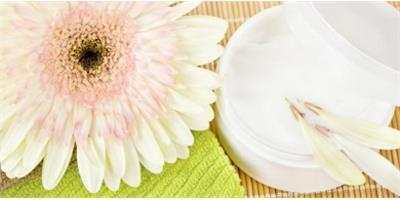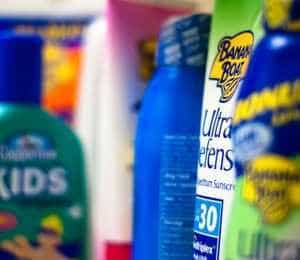Recently, the market for natural beauty products has exploded.
This is a welcome trend because our skin absorbs 60% of what we put on it, so choosing natural skin care is choosing healthier skin care.
But the proliferation of products featuring “natural” on the label doesn’t necessarily make it easier to make healthier choices because manufacturers can (and do) use the term loosely.
Unfortunately, there is little regulatory oversight to protect consumers from misleading use of the term, so here are five pointers to help you make healthier choices at the beauty counter.
1. Educate yourself.
While changes are in the works, today we can’t count on government or industry to protect us from misleading label claims. Your first line of defense should be a good offence: learn as much as you can about cosmetics ingredients so you know what you’re buying. There are a couple great books on the topic: There’s Lead in Your Lipstick by Gillian Deacon, and Ecoholic Body by Adria Vasil are two of my favourites.
2. Remember, “natural” doesn’t necessarily mean “all natural”.
To some manufacturers “natural” means “naturally inspired,” and “naturally inspired” can mean anything. One global beauty company markets a line of “Naturals” that contain some of the harshest (sodium laureth sulfate) and most toxic (methylparaben) ingredients in all personal care. Back to Number 1: learn how to read the ingredients on the label so you know exactly what you’re buying.
3. Learn to identify the preservatives.
Every personal care product with water must contain a preservative; otherwise, the shelf life would be measured in days, not months. Until recently the only reliable preservatives were synthetic; but advancements in the science of skin care mean we now have effective natural options. These new natural preservatives typically keep a product fresh for up to twelve months after it is opened. If a product claims a shelf life of eighteen months or longer, it is a clue that the preservative is probably synthetic.
4. It’s not about the bottle.
It’s about what’s in the bottle. Natural beauty products are often referred to as “green beauty” or “eco beauty” products. Sustainable business practices are important, and packaging should be eco friendly, but when it comes to natural beauty, it is a health issue, not an environmental issue. If your skin care company is talking about the packaging, they’re probably trying to distract your from what’s inside the packaging.
5. Beware fragrance.
When it comes to fragrance, “scent is the new second-hand smoke.” The most common scent ingredients, phthalates, are also the most toxic, and are known to be endocrine disruptors. If you really like scent in your products, be sure to choose ones that are scented with essential oils. But really, it shouldn’t be about what your skin care smells like; it should be about what it does for you. Consider using unscented or fragrance free products.
Bill Baker is the President and Founder of Consonant Skincare. With their mantra, What goes on your body goes in your body®, the mission of Consonant Skincare is to improve the lives of their customers with healthy products that deliver immediate results and long-term well-being.
Image Credit: Marin
Did That Help!? You Might Like These:
 |
 |
 |
| Winter Skin Care For Kids and Parents |
Where to Go Skating In Toronto, Calgary, Ottawa and Vancouver |
Understanding Anaphylaxis |




